Introduction
We follow the advice of experts like Randa Kriss in her report on The American Kennel Club website on Aug 29, 2021. The report tackled the issue of “can dogs eat cheddar cheese” and concluded that they can, but with some qualifications.
The qualifying factor gets based on the levels of constituent ingredients in cheddar and other cheese types. These are fats, salts, and lactose.
Why is Cheddar Cheese Good for Dogs?
Cheddar cheese comes as natural and hard cheese made with a crumbly texture. It appears smooth when still young with a mild taste, but gets sharper as it ages. As compared to other cheese types, it contains reduced fat contents, low lactose, and sodium.
Those low ingredients contents make it offer many health benefits for your pet when given in moderation as follows:
- Cheddar contains phosphorous and calcium which both combine to enhance your dog’s bone strength. Phosphorus is a mineral with heart-healthy potency and aids kidney and liver health.
- Cheddar cheese contains selenium that has antioxidant properties essential for your dog’s immune system. On top of that, it’s a known source of Vitamin A, B12, Riboflavin, and essential fatty acids. All those are essential for the dog’s health.
- A report on Petcarex.com indicates that some dogs get affected by foods containing lactose. All dairy products contain lactose, but some have more than others. Cheddar cheese carries lower lactose levels than other cheese types making it an ideal dog treat when consumed in moderation.
- The health benefits of different types of cheese get quantified by the amount of fat and sodium content. Cheddar has lower content than other cheese types and is hence considered a good treat for dogs.
- Cheddar can also get used to conceal dog pills that your dog dislikes taking.
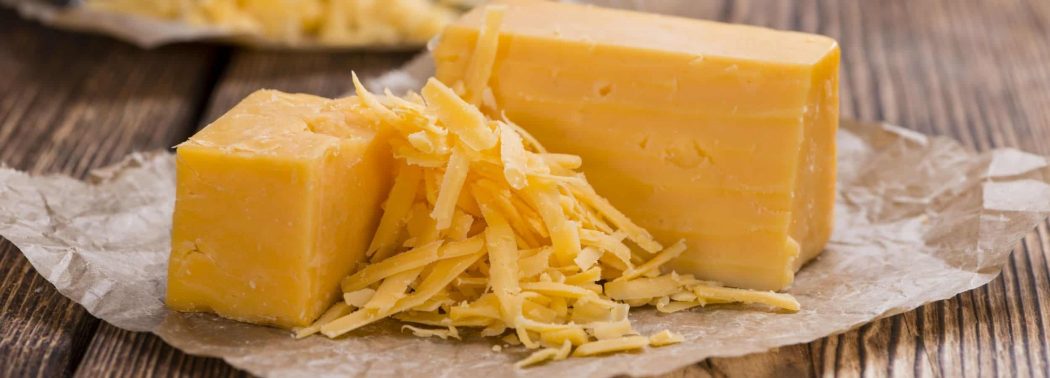
Can Cheddar Cheese be Bad for Dogs?
Although safe for your dog, you aren’t guaranteed zero effects depending on the consumption amount. There may arise a few side effects such as:
- The fat content, though less when compared to other cheese types still reads high at 6 grams per ounce for saturated fat and 9 grams per ounce for total fat. High-fat content can affect your dog’s wellness leading to weight gain, heart diseases, and pancreatitis.
- Large quantities of consumed cheddar will accumulate high sodium content in your dog. That may cause sodium poisoning if the dog doesn’t drink enough water to dilute.
- It’s also good to determine whether your dog shows any signs of lactose intolerance. Such kinds of dogs may get affected by the low lactose quantities found in cheddar.
How Much Cheddar Cheese can my Dog Eat?
You can rightly say that feeding your dog with cheddar cheese is safe. But, according to Pumpkin.care, the nutrition profile of an ounce of cheddar is still high at:
- Calories: 120
- Calcium: 200 mg
- Vitamin A: 400 mg
- Cholesterol: 30 mg
- Fat: 10g (6g is saturated fat)
- Carbs: 0
- Protein: 7g
- Sodium: 190 mg
That shows that moderation is required when offering it to your dog.
How to Prepare and Serve Cheddar Cheese for your Dog?
Whenever preparing a cheddar treat for your dog, you should maintain the recommended 10% portion of the dog’s calories intake in a day. The dog’s food intake combined with treats needs to equal the total daily calories required.
Sources
- Can Dogs Eat Cheese?, 2021, Randa Kriss
- Dogs and lactose intolerance, 2021, PETCARERX
- Can Dogs Eat Cheese? Is Cheese Safe For Dogs?, 2020, Jean Andrei
- Can Dogs Eat Cheese? Yes, But It’s Best in Small Quantities, 2021, Lynn Guthrie
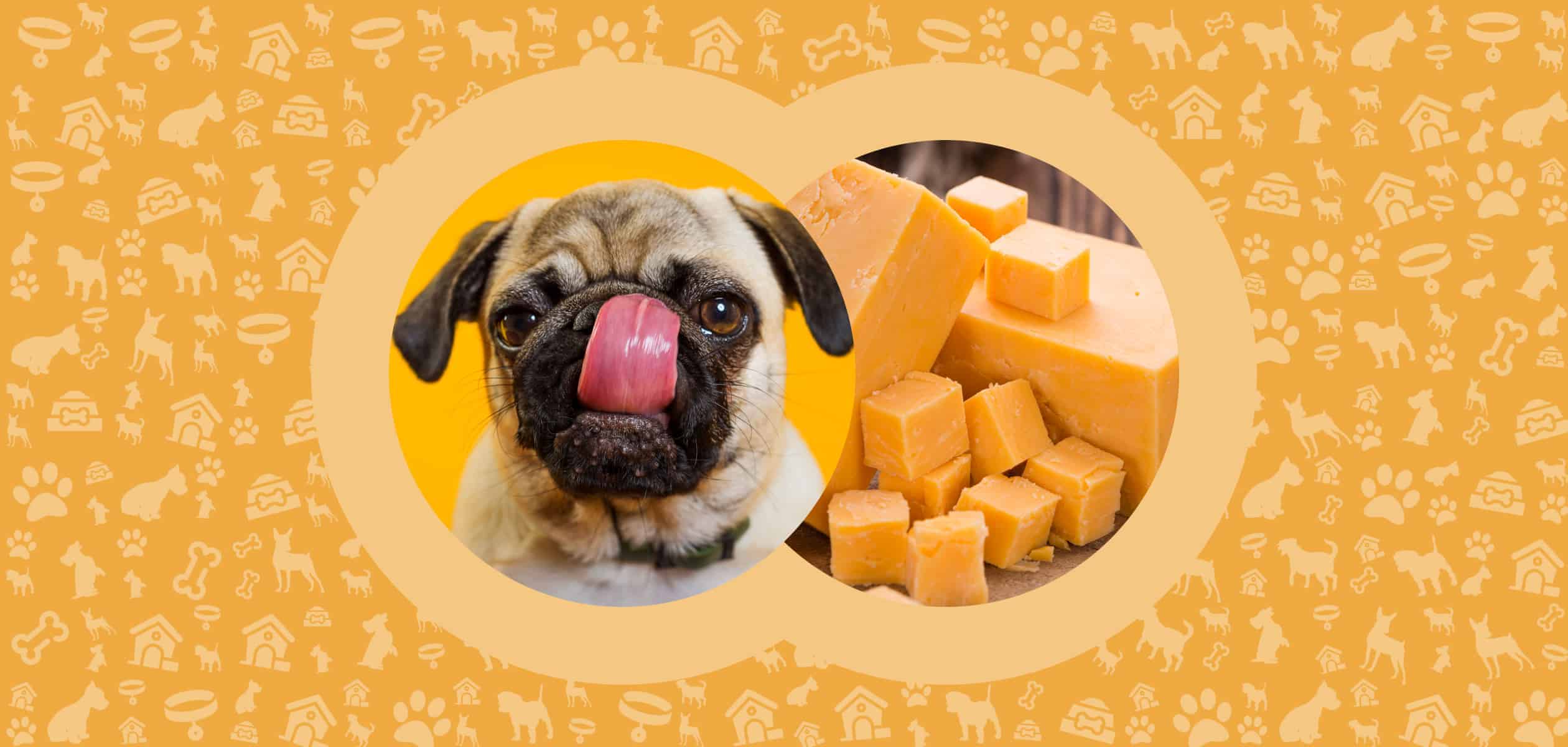
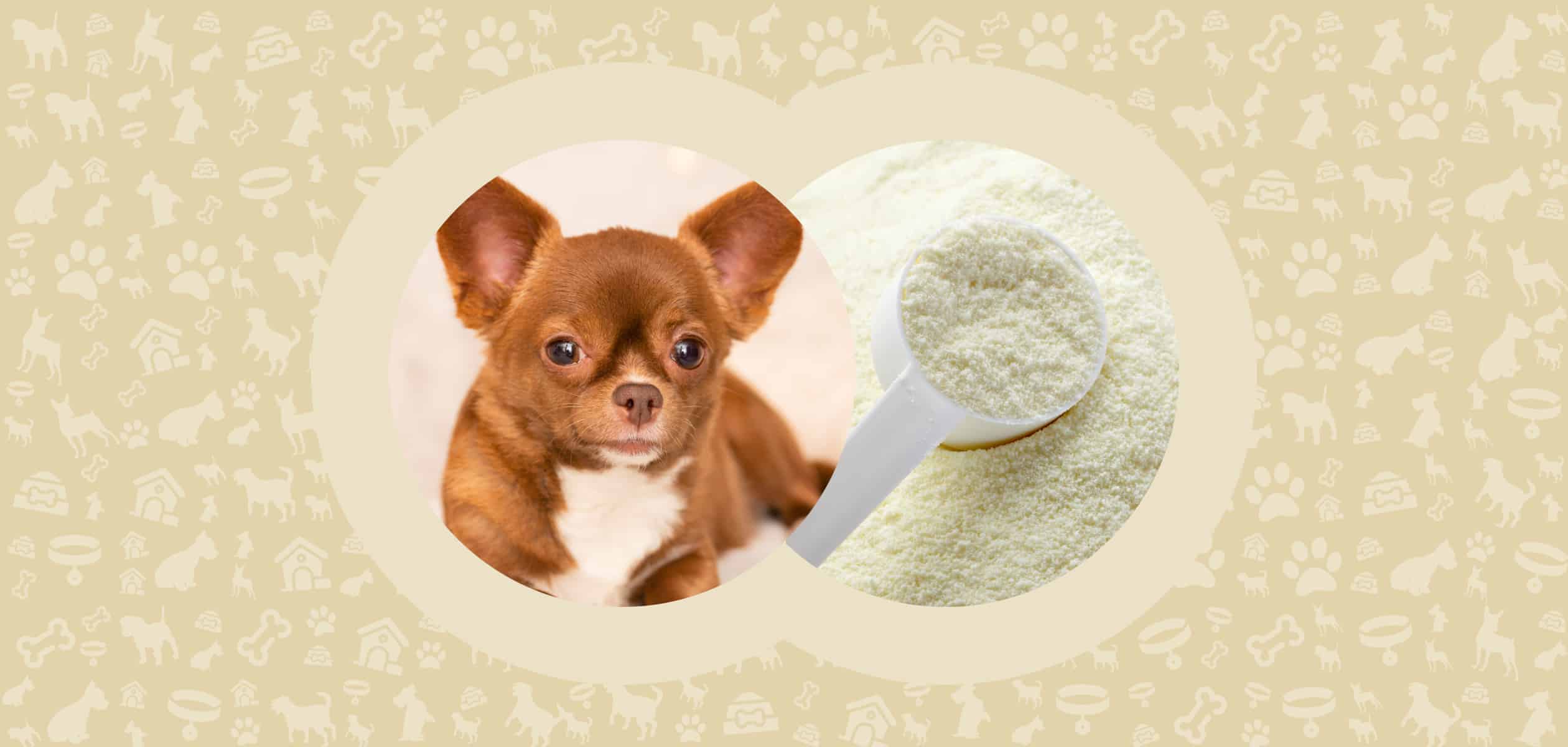

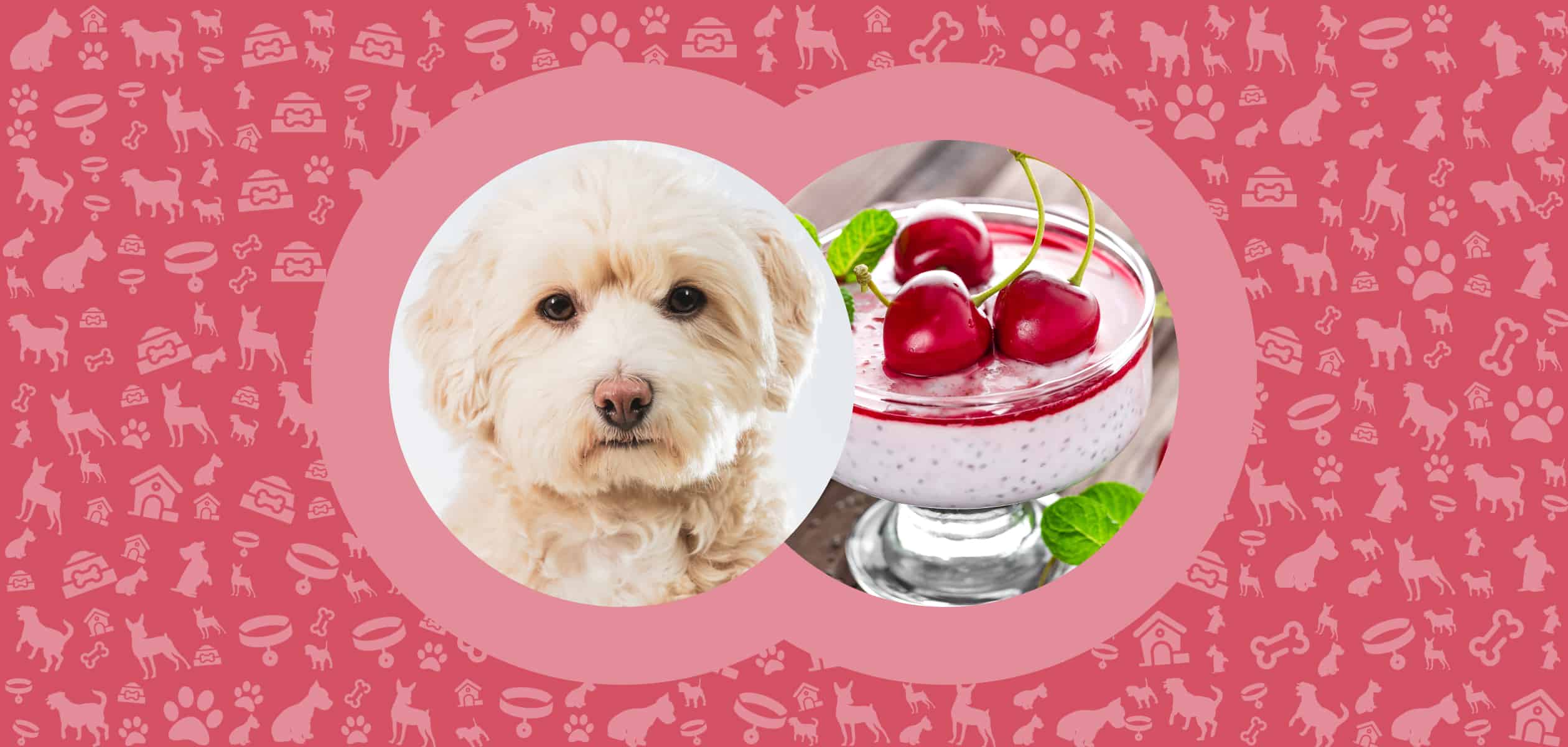
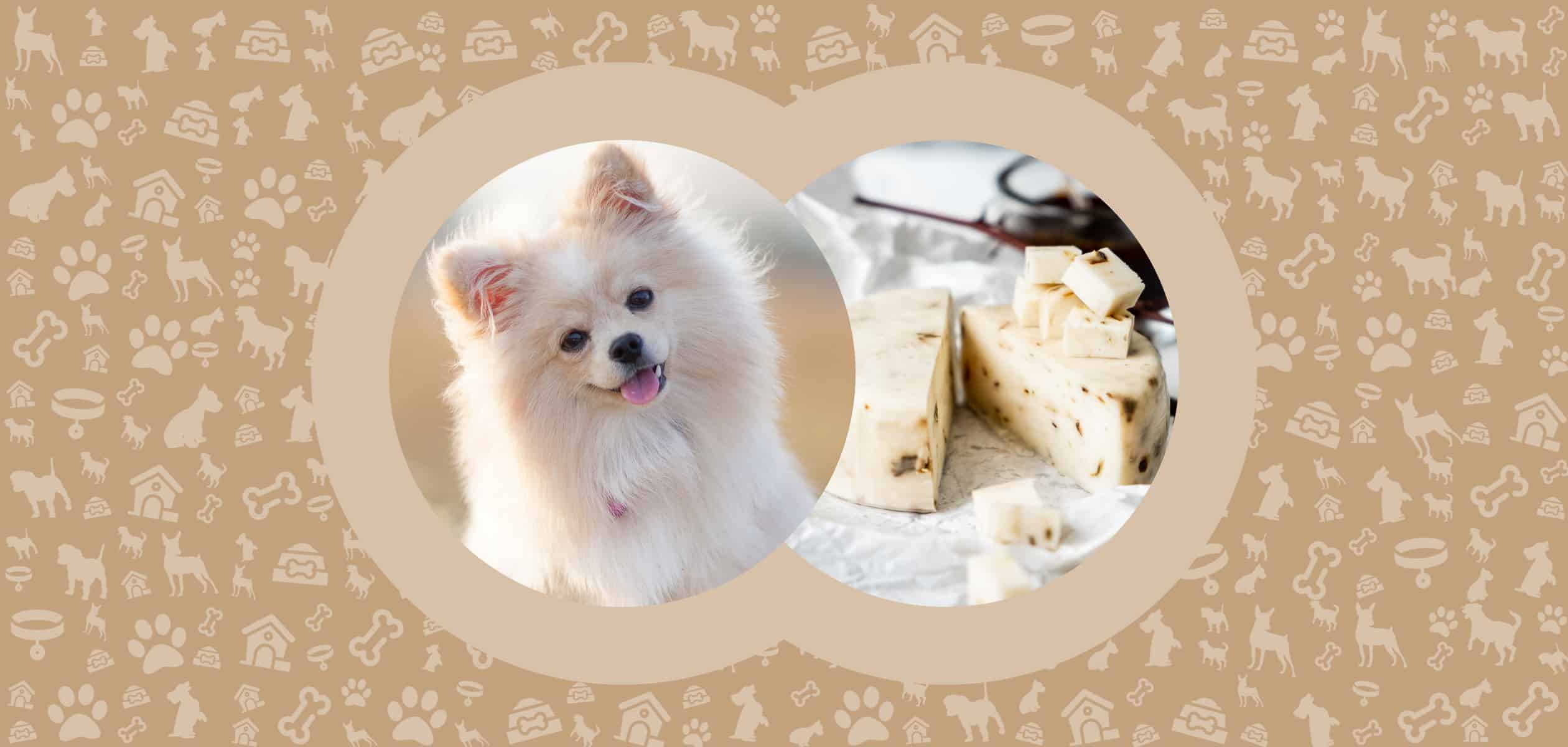
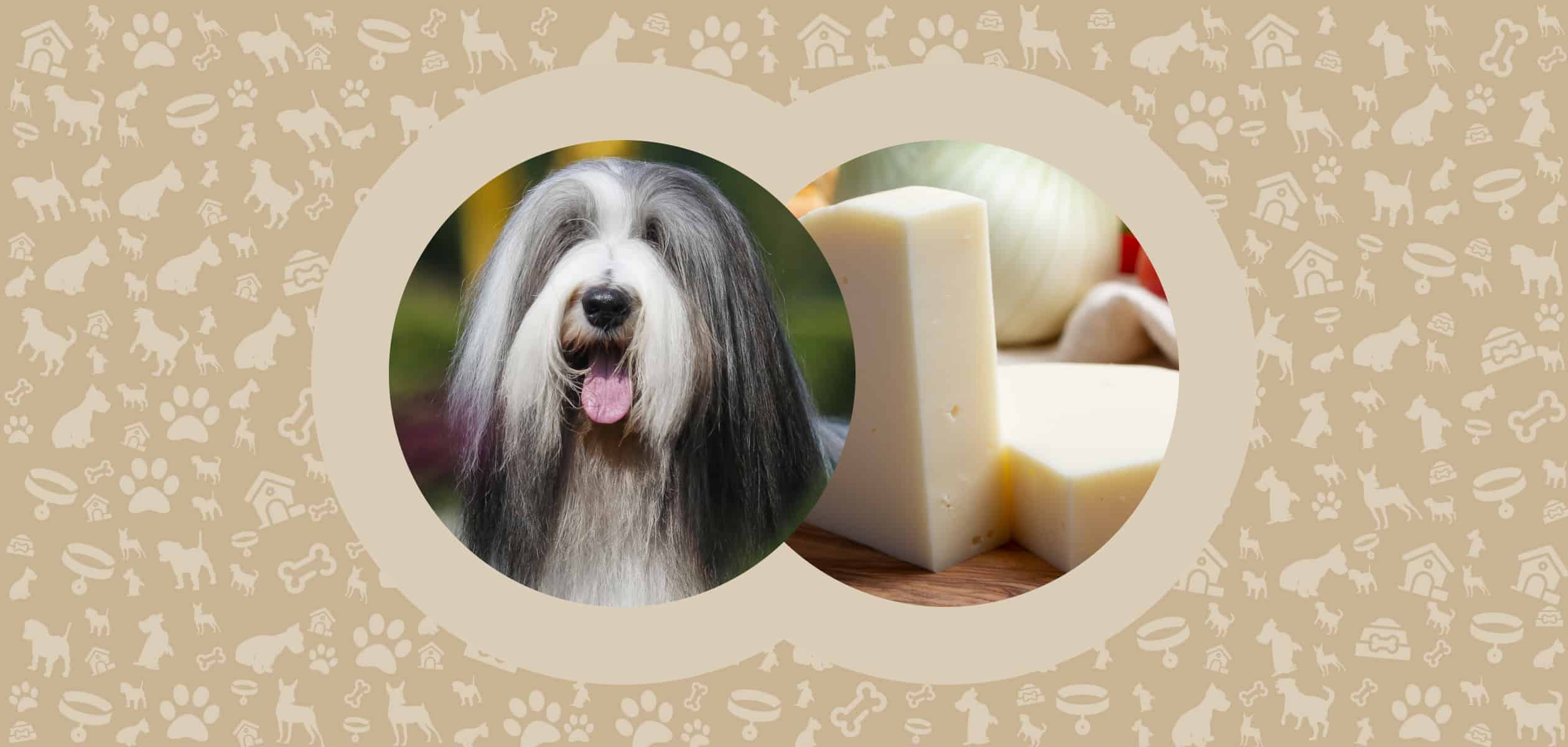
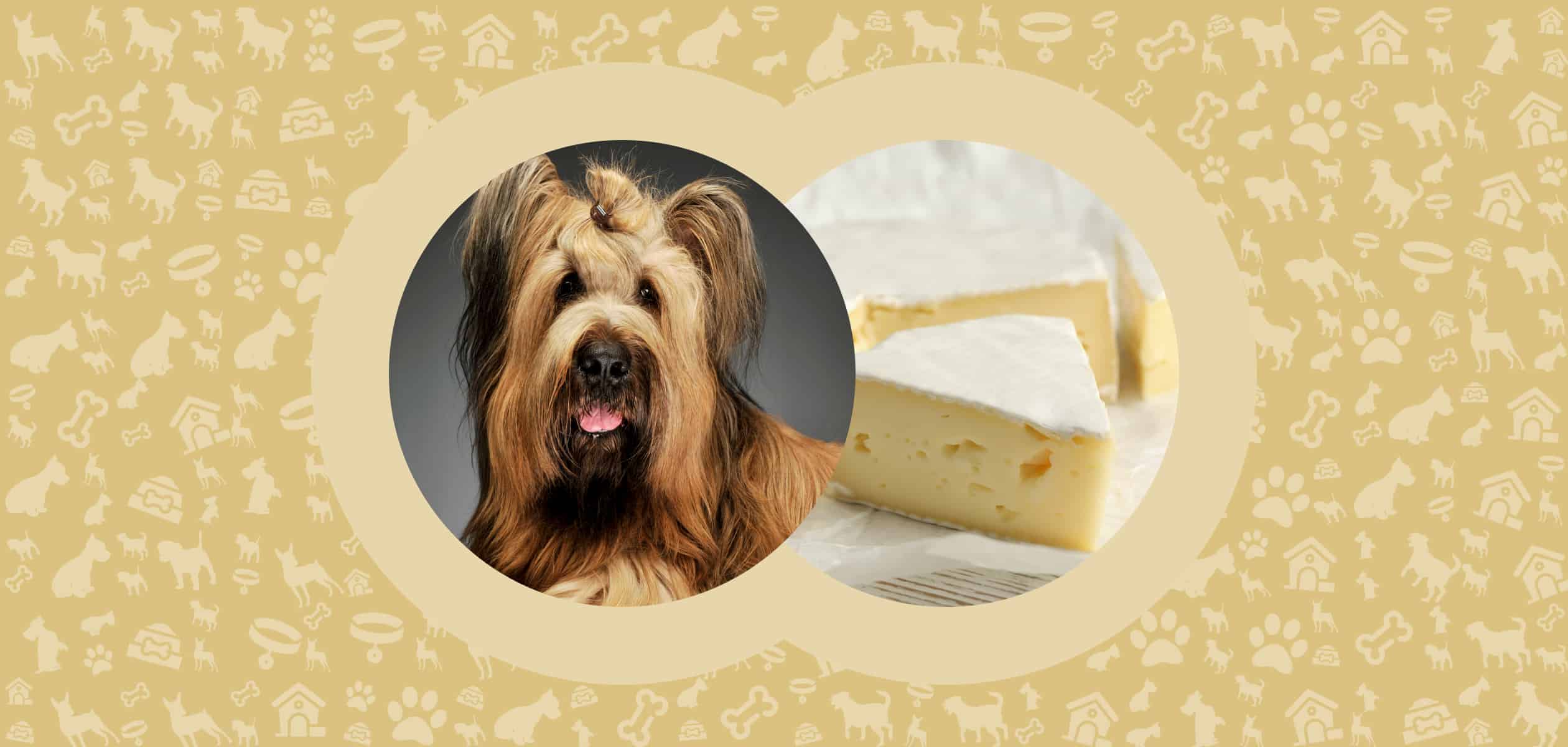
Leave a Comment